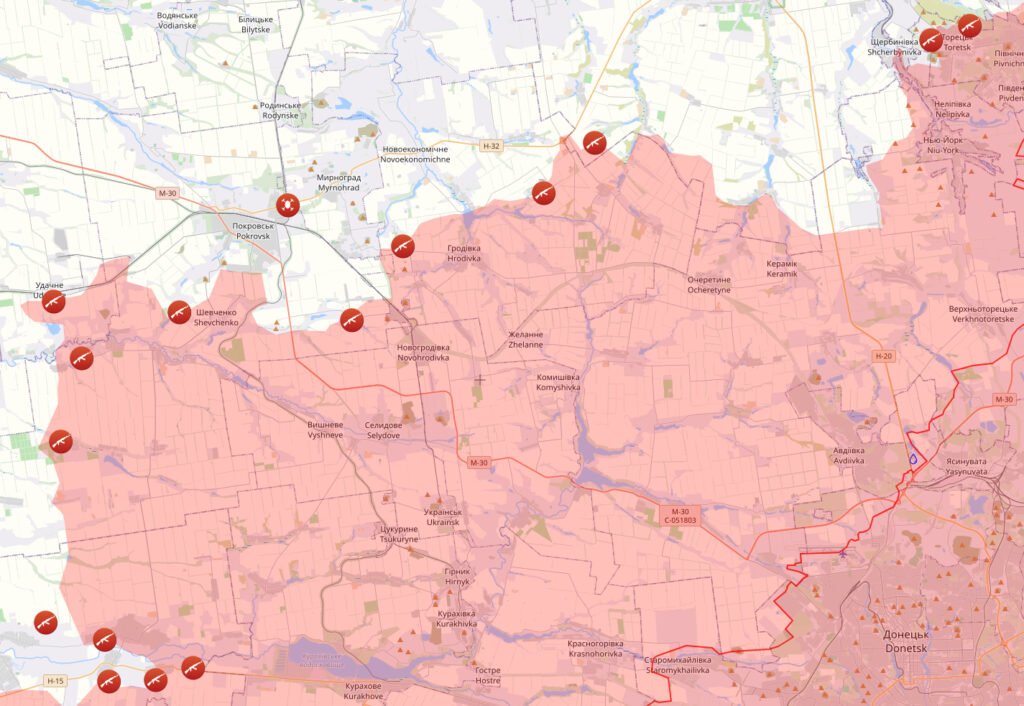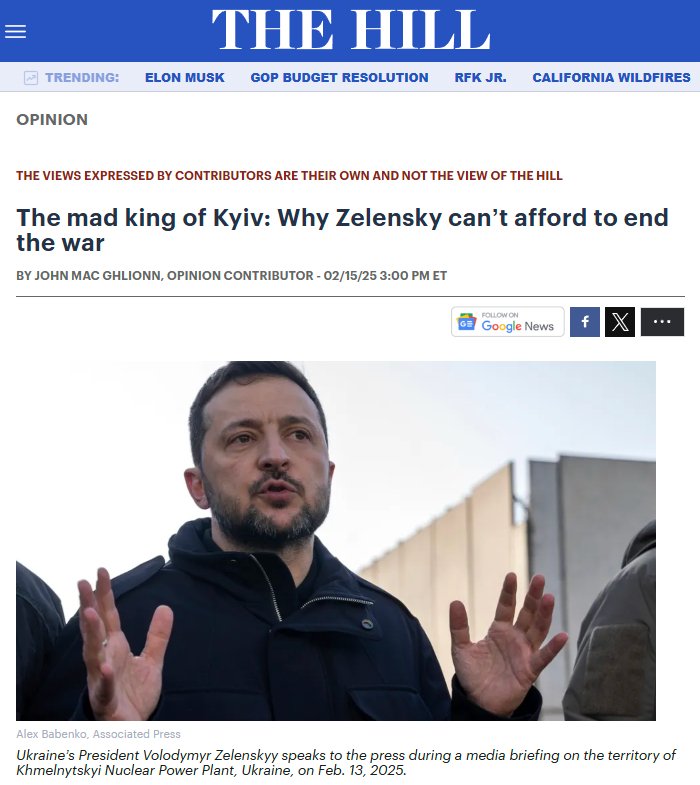Right or wrong, good or bad… whatever your subjective opinion regarding Trump, his ability to disrupt the ‘established’ status quo and challenge the received wisdom of western political, cultural and media classes is obvious.
Less than one month since his inauguration and the global landscape is replete with dusty and tattered rugs that have been pulled out from under the shaking legs of ‘the establishment.’ Howls of shock, derision and pain – and actual tears – can be seen and heard across western structures including the European Union and NATO.
Elected and unelected officials alike are scrambling to respond to Trump, Hegseth, Rubio and Vance.
It’s difficult to find a more historically-ignorant perspective than that offered by Margaret Brennan while interviewing Marco Rubio for ‘Face The Nation’ on CBS (transcript) where, in an attempt to equate Vance’s criticisms of European countries regarding ‘free speech’ with the moustachio’d go-to villain Adolf, asserted that “… he [Vance] was standing in a country [Germany] where free speech was weaponized to conduct a genocide…”
Lunacy… and a kindergarten-level understanding of historical reality highlighting the commonly-deployed, manipulative, misinformational tactics of the ‘liberal establishment.’
Here’s US Vice President Vance speaking at the Munich Security Council (transcript)… which unsurprisingly did not go down well…
… and in response, actual applause for actual tears from Munich Security Council Chairman Christoph Heusgen…
When it comes to the Panama Canal, Greenland, Canada and Gaza, I suspect Trump’s various statements stem more from his application of ‘the art of the deal’ rather than from any serious intent. Bluff, posture, threat… aimed at discombobulating and disrupting the landscape.
Speaking purely personally, if taken literally and as a genuine assertion of intent, Trump’s calls for the Panama Canal to return to US control, for the US to ‘acquire’ Greenland, for Canada to become the ’51st state’ of the US, and for Gaza to be ‘taken’ by the US, emptied of Palestinians and for the coastal strip to be developed as high-end real-estate… are all nuts and, in the case of Gaza, morally-reprehensible.
I could be wrong but as I have said, I suspect these comments are merely disruptive discombobulations aimed at throwing received wisdom up into the air and provoking responses. We shall see how such statements pan out, if at all, into future reality.
However when it comes to Ukraine and the future security architecture of the European continent, I discern (perhaps) the existence of actual intent and actual policy, far-removed from that of the previous administration, and for which the majority of US allies including the United Kingdom, Canada, Australia, NATO members and EU countries are utterly unprepared.
A background insight regarding Trump’s policy and understanding of the current situation in Ukraine, and future efforts to negotiate a peaceful settlement to the Russo-Ukrainian conflict may be gleaned from US Defence Secretary Hegseth’s statement to the Ukraine Defence Contact Group (transcript)…
It may also be worthwhile listening to Putin’s comments at the Munich Security Council in 2007 (transcript – including Q&A); I suspect forthcoming specifics with regard to Ukraine will bear some reference to Putin’s statements and assessments from that time. Apologies for the poor video quality…
Coupled with the stated position of the current US administration, it may be possible to discern a route forward in coming discussions and solutions.
The military reality in Ukraine after almost three years of operations is one of defeat for Ukraine along the entire front. Each day brings Russian success, battleground victory, and advance. Ukraine is being ‘demilitarised’ in accordance with Russian attritional intent and strategic application and Ukraine’s capacity to resist is dwindling.

Russia’s advances since the fall of Avdiivka towards the environs of Pokrovsk have been swift, significant and undeniable, even to Ukrainian-aligned mapping. A similar picture can be found in the ‘Kursk Salient’ around Sudzha, around Kupiansk, Andriivka, and Velyka Novosilka. Air, missile and drone attacks from Russia have not abated.
Western sanctions against Russia have, it seems, merely enhanced Russia’s economy, boosted her industrial manufacturing capacity and fortified her strategic relationships with China, North Korea, Iran and BRICS.
Taken as a whole, Ukrainian collapse is approaching. Russia is on the verge of unleashing ‘big-arrow’ offensive manoeuvres that will slice through broken defences, exploit rear lines and force control of ever-larger swathes of Ukrainian territory towards the Dnieper. The timing of such manoeuvres will be dictated by Russia; she is in control, has both initiative and impetus, and commands the entire theatre.
In all arenas, Russia is stronger now than she was three years ago. Russia thus has the upper-hand and will enter any negotiations or discussions from a position of strength and dominance.
So how will the US seek to ‘negotiate’ with Russia, and what leverage can the US bring to bear?
US and Russian representatives are currently meeting in Saudi Arabia.
With more and more western media outlets providing negative perspectives for Ukraine, Zelenskyy is notably absent.

Here’s an interesting observation from Maria Zakharova, Russian Foreign Ministry Spokesperson…
“In diplomacy, political science, and the history of international relations, the term ‘Concert of Europe’ is well known.
It emerged as a description of the international system established after the Congress of Vienna (1814–1815), which marked the end of the Napoleonic Wars and introduced a balance of power among Europe’s major states as the foundation of stability.
In this context, ‘concert’ refers to ‘agreement’ or ‘harmony.’
Since Europe was the center of global political thought in the 19th century, the ‘Concert of Europe’ was sometimes referred to as the ‘Concert of Nations.’
This system lasted until 1914, when the Vienna-led order collapsed with the outbreak of World War I.
After the Versailles-Washington system was established between 1918 and 1922, bringing an end to the First World War, many observers believed it to be inherently unstable and unlikely to last long—which, as history proved, was indeed the case. Drawing from the relatively long stability of the Vienna system (‘Concert of Europe’), some proposed a global ‘Concert of Nations’ as an alternative. One of the key proponents of this idea was the American scholar and politician Joseph Francis.
And now, a hundred years later, whether by coincidence or with historical awareness, Finnish President Alexander Stubb has stated:
“I feel that the Munich Security Conference, which has always been my favorite, has become a diplomatic cacophony. (…) We (Europe) need to listen to what the Americans are saying and take on more responsibility.”
To this, I will say the following:
You – not Europe, but Western Europe – need to take a map and realize that there is no Europe without Russia. Russia is Europe, as it has preserved the true values that Western Europeans have destroyed within their own countries.
And until you understand this, there will be no concert—only cacophony.”
